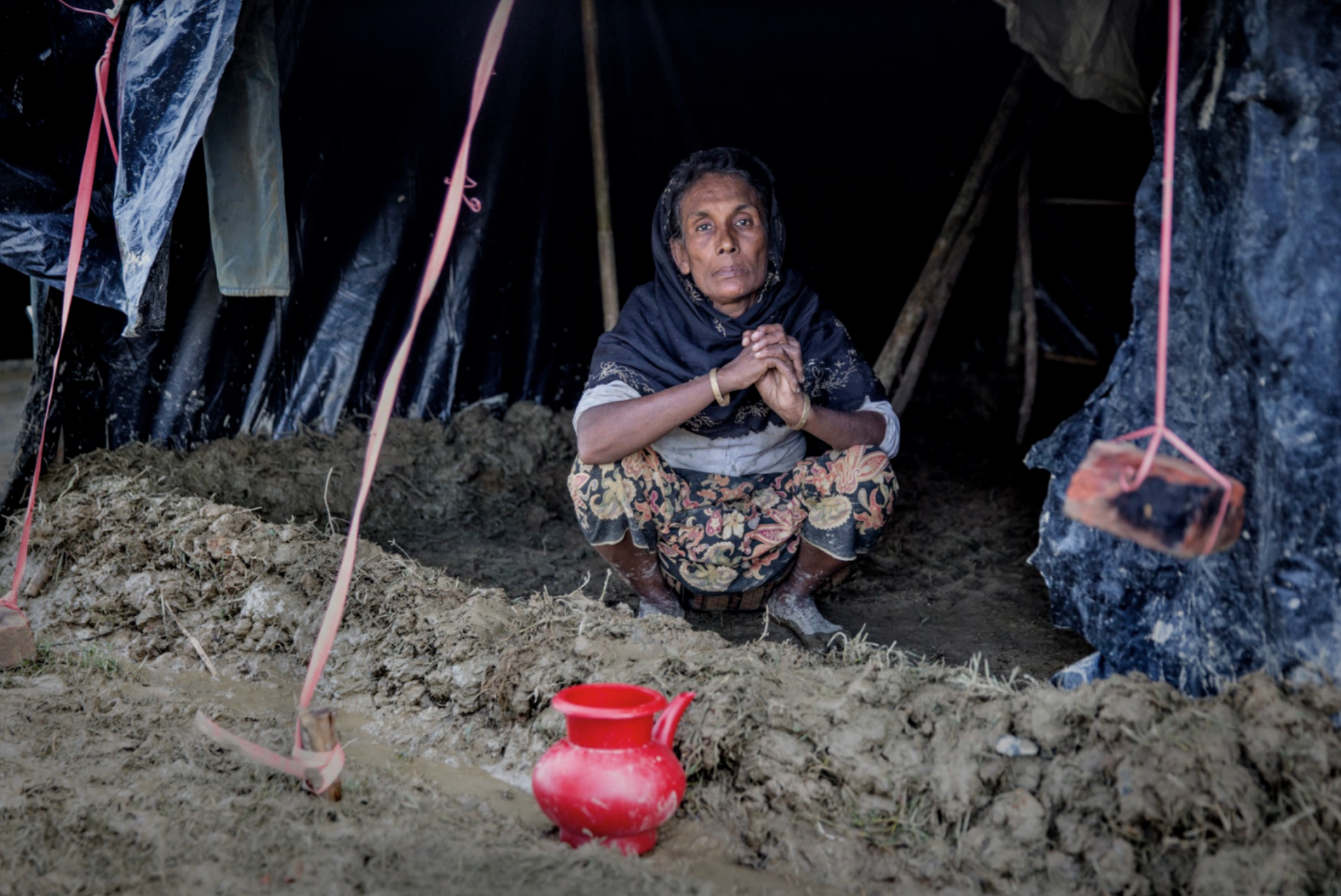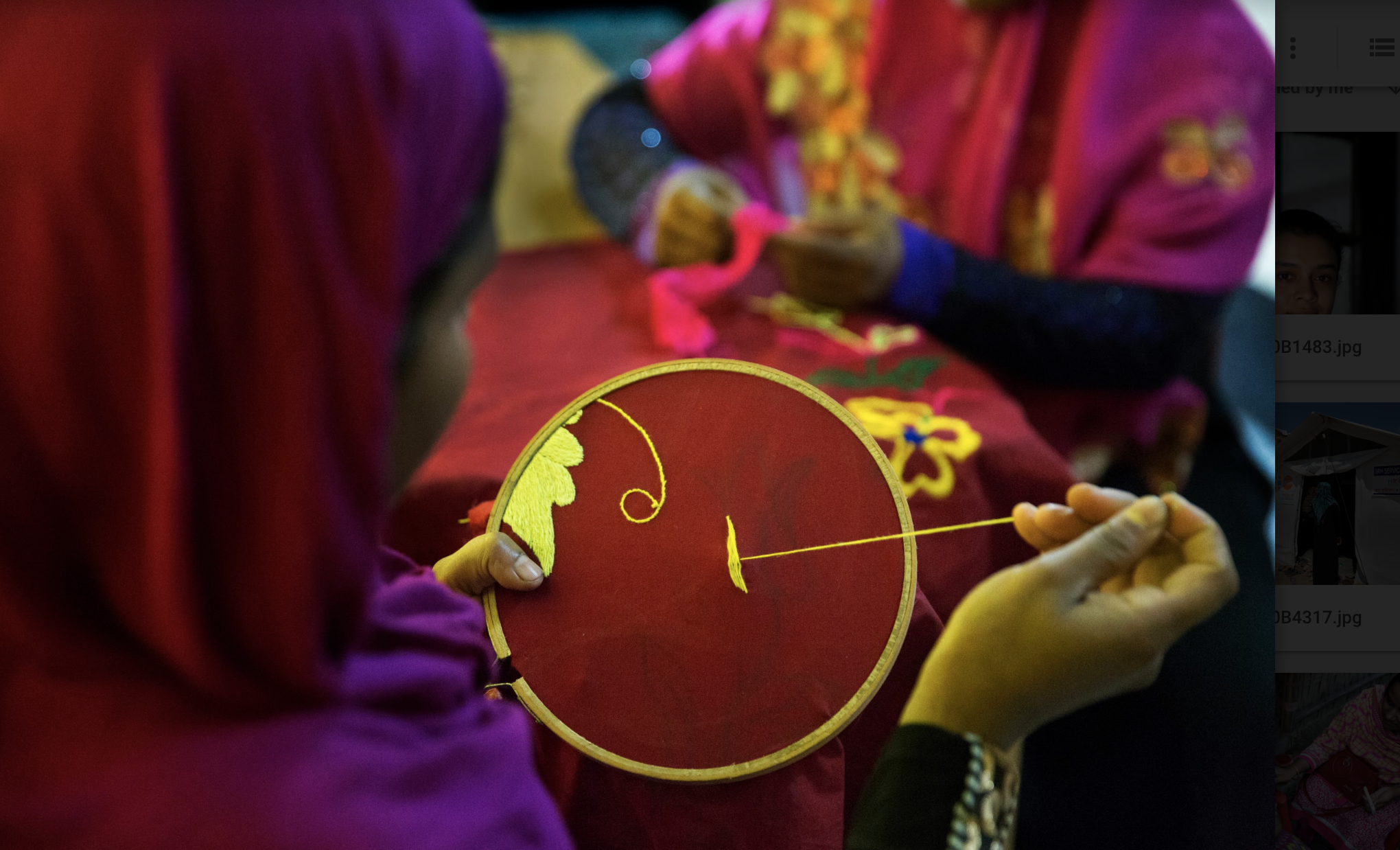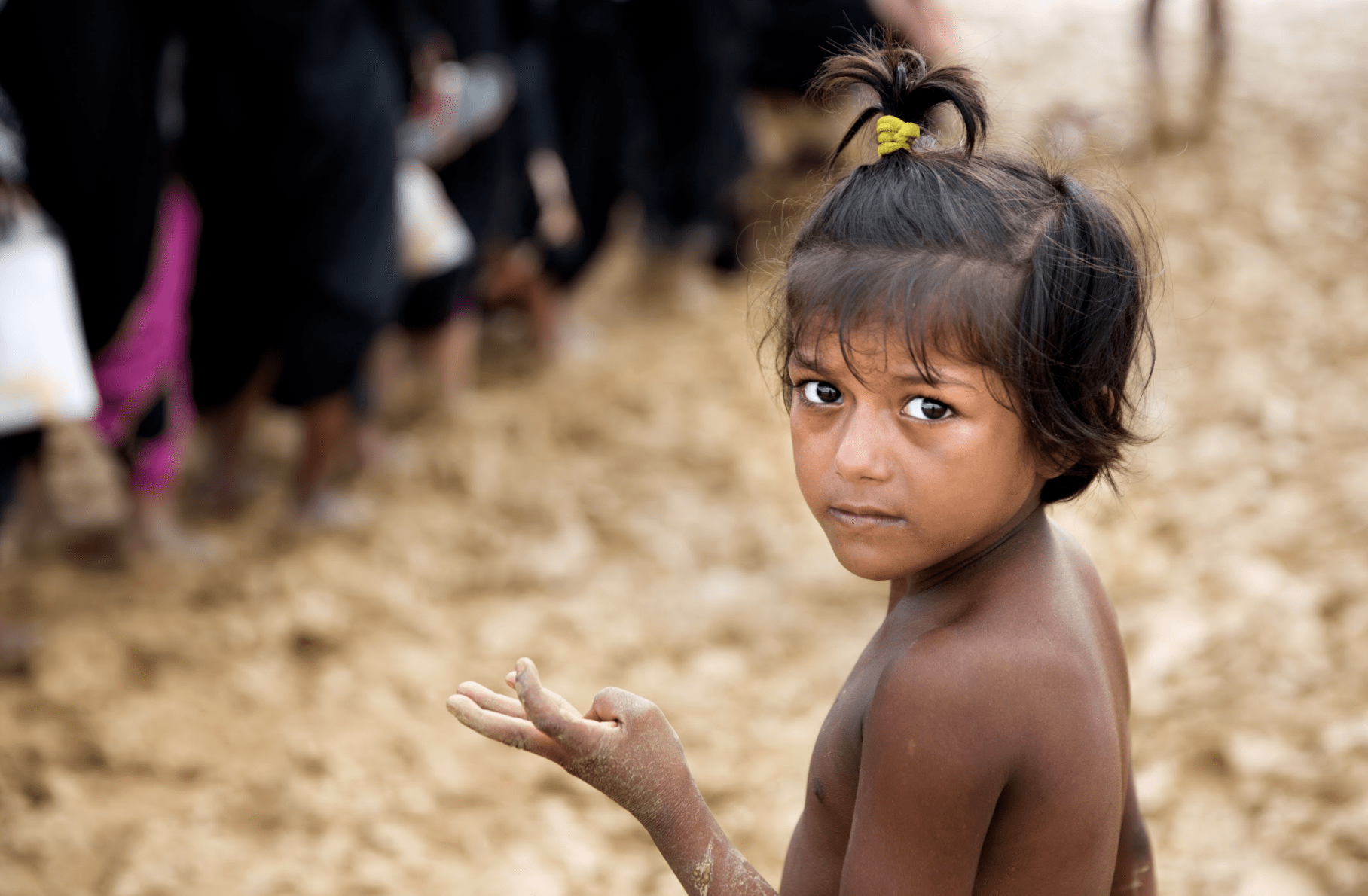UNFPA and partners are working around the clock to ensure the safety of hundreds of thousands of Rohingya refugees in the sprawling camps of southern Bangladesh, as they brace for monsoon cyclones, wind and rains that tear across the country for around four months each year.
Over 700,000 Rohingya refugees, more than half of them women and girls, have arrived in the Cox's Bazar district of Bangladesh from neighbouring Rakhine State in Myanmar since August 2017, swelling the population of the makeshift camps to well over 1.3 million.
Thousands have suffered severe trauma, including witnessing the murder of loved ones, the burning of their homes and villages, sexual violence and other acts of brutality, before fleeing on the long and treacherous journey to reach relative safety in Bangladesh.
With most of the Rohingya holed up in flimsy bamboo and tarpaulin tents on hillsides, the first rains of the monsoon season, arriving on April 18, have renewed fears of mudslides, water-borne diseases and other infections.
The relentless South Asian monsoon is set to pile more misery onto these beleaguered people, by ripping at their flimsy homes and turning their temporary neighbourhoods into muddy, slippery swamps.
Planning ahead, the government, with UN support, have begun the voluntary relocation of those facing the greatest risk of floods and landslides to safer, more even ground.
Yet the sheer scale of the crisis makes it impossible to move everyone, so the UN and partners are working feverishly to brick paths, build drains, sandbag stairs and strengthen shelters throughout the camps.

A Rohingya woman in the Nayapara-mushuni makeshift camp in Bangladesh in 2017. The monsoon rains threaten to make life in the camps far more difficult. Photo: UNFPA / Naymuzzaman Prince.
Safe havens
As of now, UNFPA runs 19 Women Friendly Spaces across the many camps in southern Bangladesh, where trained professionals offer counselling, support, recovery and referral services to vulnerable women, including survivors of, or at risk of suffering from, gender-based violence.
Staff are also offering training and information sessions to help women prepare for nature’s oncoming onslaught, including learning how to recognise warning signals and sirens, where to seek help, stay together as a family, protect possessions from water, and care for pregnant women and those who are unwell.
Waving her arms wildly, a woman at an information session on April 18 showed how the plastic roof her of shelter rattles around in the wind. “At home we had sturdy, safe houses, so I’m learning a lot here,” she says. In response, a UNFPA case worker confirmed that shelters in need of repair are being sought out and strengthened.
Meanwhile, UNFPA’s engineers and partners have scoured for safer areas to where at-risk Women Friendly Space tents can be relocated, and are working to buttress those structures so that they will remain where they stand, as the safety of women and girls is paramount for the organisation.

Survivors of gender-based violence are offered counselling, medical referalls and and space to recover from trauma at UNFPA's Women Friendly Spaces. Photo: UNFPA / Naymuzzaman Prince.
UNFPA’s response to the crisis
All through the crisis, UNFPA has stood up for the sexual and reproductive health and the dignity of women and girls affected, including pregnant and lactacting women, and survivors of sexual and gender-based violence.
Since August 2017:
- Over 110,000 women and girls have received UNFPA’s Trademark Dignity Kits, that contain vital health, hygiene, safety and sanitary products for women and girls caught up in emergencies.
- Over 180,000 visits to UNFPA’s Women Friendly Spaces have taken place and almost 120,000 women have attended information sessions.
- More than 250,000 women and girls have been screened by UNFPA-deployed midwives and reproductive health workers.
- 72,000 women have received vital ante-natal care.
UNFPA is truly grateful for the support from all of our donors that makes our crucial, life-saving work possible. If you would like to support our efforts, please consider making a donation at www.unfpa.org/donate or www.friendsofunfpa.org.



